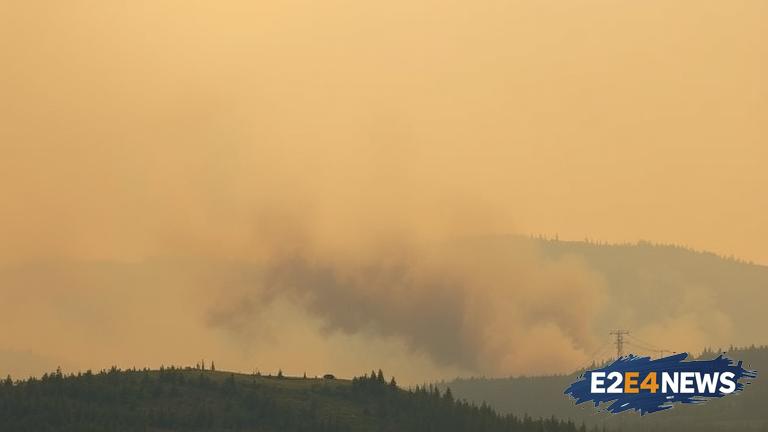The month of August has brought an unexpected and unwelcome visitor to the Puget Sound region of Western Washington – wildfire smoke. Typically, the region experiences a dry and warm summer, but this year’s conditions have been exacerbated by a severe drought. The Olympic and Cascade mountains, usually a haven for outdoor enthusiasts, have been shrouded in a thick haze, reducing visibility and air quality. King County, which includes the city of Seattle, has been particularly affected, with residents waking up to a smoky smell and hazy skies. The smoke has been attributed to wildfires burning in the region, fueled by hot and dry conditions. Climate scientists point to the increasing frequency and severity of wildfires as a symptom of climate change. The smoke has also raised concerns over air quality, with particulate matter levels reaching hazardous levels. Residents are advised to stay indoors and avoid strenuous outdoor activities. The Washington State Department of Ecology has issued an air quality alert, warning of potential health risks. Meanwhile, the National Weather Service has predicted a chance of rainfall in the coming days, which may help to alleviate the smoke. However, the region’s drought is expected to persist, with long-term consequences for the environment and local ecosystems. The smoke has also impacted local businesses, particularly those reliant on outdoor tourism. The Washington State Department of Natural Resources has reported an increase in wildfires, with over 100 fires burning across the state. Firefighters are working tirelessly to contain the blazes, but the smoke continues to pose a challenge. The region’s iconic mountains and forests, usually a source of pride and beauty, have been transformed into a smoky and barren landscape. As the situation continues to unfold, residents are left wondering what the future holds for their region. Will the smoke become a regular occurrence, or can efforts be made to mitigate its effects? The answer remains uncertain, but one thing is clear – the impact of climate change on Western Washington’s environment and communities will only continue to grow. In the short term, residents can expect continued smoke and poor air quality, with potential health risks and disruptions to daily life. The long-term consequences, however, are far more ominous, with the potential for devastating wildfires, droughts, and ecosystem disruption. As the region struggles to come to terms with this new reality, one thing is certain – the need for urgent action to address climate change has never been more pressing. The smoke may eventually clear, but the memory of this unprecedented August will linger, serving as a stark reminder of the challenges that lie ahead.
